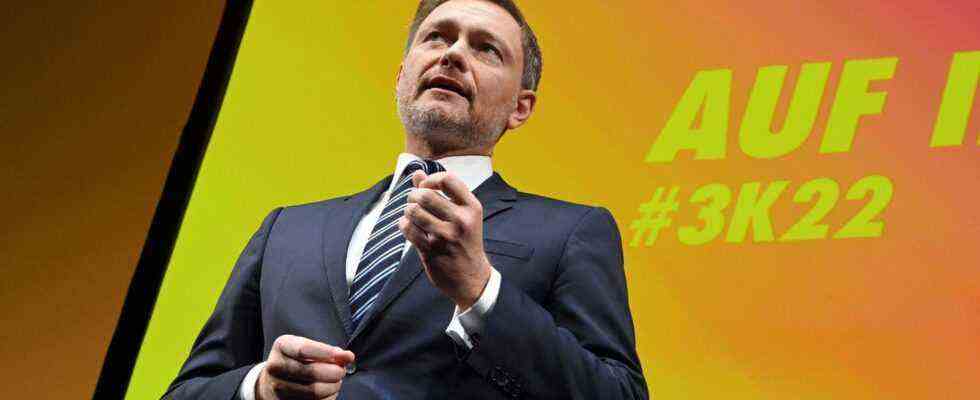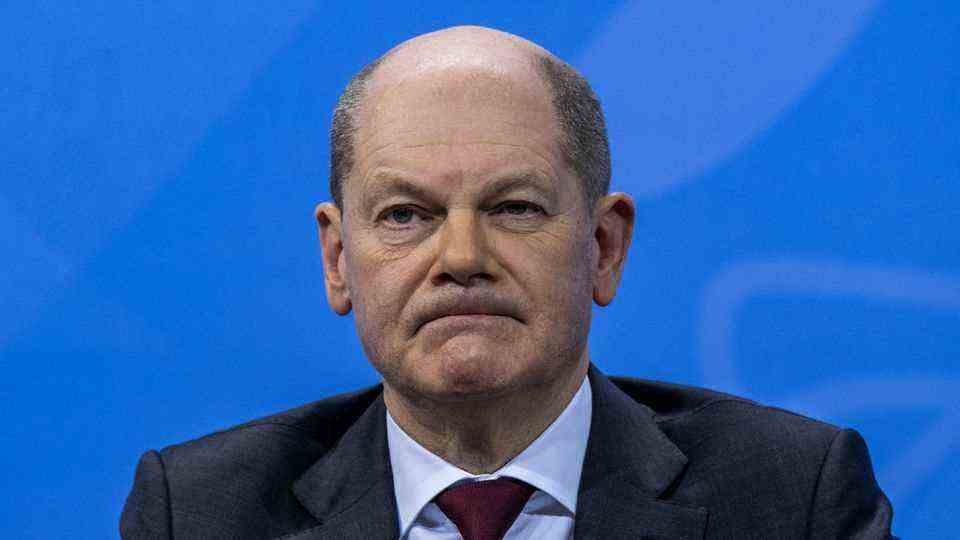Looking for a common course
How the FDP falters when it comes to compulsory corona vaccination
Christian Lindner, Federal Chairman of the FDP and Federal Minister of Finance
© Uli Deck / DPA
In the struggle for the introduction of a general obligation to vaccinate, it turns out to be a tough lot to be liberal: the FDP is at least divided on the issue, opinions differ widely. Is there a compromise?
Yes, no, yes: Christian Lindner could be an example of the swaying and swaying that the debate about the introduction of general vaccination is currently for many in politics. Is it really needed, and if so, what might it look like? The FDP in particular appears at least at odds when looking for answers.
Lindner tried in the “World on Sunday” an attempt at an explanation. The FDP leader outlined the “different considerations” that a liberal could come to: “On the one hand, compulsory vaccination would be a sensitive encroachment on the right to self-determination to prevent the healthcare system from being overwhelmed. Both positions enjoy “respect” in the FDP, its chairman assured.
For a party that sees people’s personal responsibility as the essence of their brand, this is definitely a dilemma. Lindner hasn’t taken a definitive stance either: that’s what he said during the election campaign against the introduction of a general obligation to vaccinate, it turned out later open to it and last undecided on the question.
There are also supporters within the FDP for a mandatory spade: the traffic light coalition members decided Compulsory vaccination for health workers at the beginning of December, the Liberals voted for it, as did the SPD and the Greens. But whether the obligatory injection should also be extended to the general population is controversial in the 92-strong parliamentary group.
The (internal) struggle for compulsory corona vaccination
Your chairman, Christian Dürr, now advised to take enough time for a decision. “Of course not for too long, of course”, he said on Saturday on Deutschlandfunk. If a decision is made, they “certainly want to make it in the first quarter.” But there are still too many practical questions to be answered, such as effectiveness and design. “That’s one reason why I say very resolutely that I’m not committed yet,” said the FDP parliamentary group leader.
The (also internal) struggle for general vaccination is putting the traffic light coalition under increasing pressure. The announcement by Chancellor Olaf Scholz (SPD) from the end of November, a vaccination against the corona virus should apply in Germany until “beginning of February, beginning of March” can hardly be put into practice. The schedule should no longer be met. And the Union, now the largest opposition party, is already pointing this out with relish.
In his first chancellor cross-examination, Scholz underlined his clear yes to compulsory vaccination, but also that as a member of parliament he would vote for a corresponding group application and would not submit his own. Karl Lauterbach, his Minister of Health – and also a supporter of compulsory vaccination – stated not to prepare an application. What the Union recently criticized as the government ducking away (e.g here and here), is apparently Scholz’ attempt to keep the coalition peace: The FDP had insisted on leaving the decision to the members of the Bundestag and to rely on group applications.
FDP Vice Wolfgang Kubicki presented the first draft application – which speaks out against the introduction of a general obligation to vaccinate. According to their own statements, more than 30 parliamentarians are now supporting the motion, as he “Cicero” said, including Union MPs. It is “not a crime not to be vaccinated,” he said “Mirror” and defended his course. He considers the “excessive exclusion” of the unvaccinated to be “completely disproportionate”.
No common course
Gerhart Baum disagrees. The former Federal Minister of the Interior under former Chancellor Helmut Schmidt (SPD) criticized in a guest article for the “Handelsblatt” the course of his party – and the “one-sided interpretation” of Kubicki’s concept of freedom. Kubicki is “entering the realm of demagogy when he claims that the majority of society is taking ‘revenge and retaliation’ against the unvaccinated.” The FDP Vice had sharply criticized advocates of general vaccination and accused them of “revenge” on the unvaccinated as a motive. “We need the instrument of compulsory vaccination that is linked to proportionality,” demanded Baum, who, however, no longer sits in the Bundestag and therefore could not submit an application.
The FDP health expert Andrew Ullmann wants to launch a cross-party application for a graduated compulsory vaccination. “My goal is to submit an application to the German Bundestag that includes mandatory vaccination information and, if necessary, a graduated vaccination requirement,” said Ullmann on Friday in the “Augsburg General”.

He is in exchange with various MPs. Ullmann therefore proposes compulsory vaccination for the elderly, as a guideline he considers compulsory vaccination for people over 50 to be worth considering. In Italy the government had one extensive compulsory vaccination for over 50-year-olds introduced, which after a short time apparently having an effect.
Yes, no, yes: In the FDP parliamentary group, three positions are emerging – for the introduction of general compulsory vaccination, against it and for a staggered compulsory vaccination. But no clear, common course.




